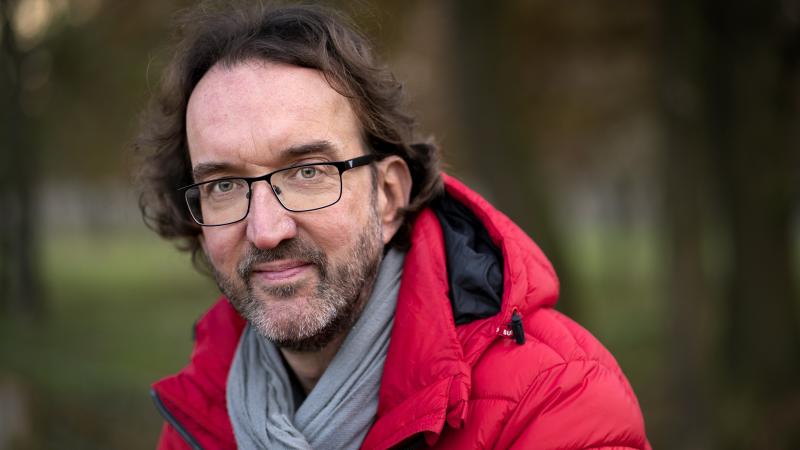The story of Deborah, senior employee DJO
‘Our team is a necessary link that completes the chain’ Deborah has noticed that a lot of people who once left the Immigration and Naturalisation Service (…

‘Every person, and hence every story, is unique. And it’s this unique story that is at the centre. In every single interview again.’
Member of IND staff Ronny is specialised in treating asylum applications with conversion at the centre. ‘In some countries the law forbids people to leave Islam,’ says Ronny. ‘For example in Iran, Iraq and Afghanistan. Anyone who is openly atheist there, or converts to another religion, risks a prison sentence or even the death penalty. And in addition, there is social isolation: someone becomes an outcast of society, friends and family turn away from you. Maintaining yourself in such a country as an “apostate” is very hard.’
Those who fear for persecution because of their religion, or for not having a religion, can get an asylum residence permit in the Netherlands. Just like for any asylum application, the personal story is at the centre of conversion cases. Because the conversion is so important, staff members specialised in this, like Ronny, can be called in.
‘I always go to an interview with an open mind,’ says Ronny. ‘I don’t know anything about someone, except that the person has had problems in their country of origin because of their religion. My most important task is to allow someone to tell their story safely. The preconditions must be right for this, so this is something I put a lot of energy into. You must be a bit of a jack-of-all-trades: have good conversational techniques, make someone feel at ease, know how someone’s culture works, know the country and be informed of the laws and regulations. In addition, sometimes a lawyer or staff member of the Dutch Council for Refugees is present at the interview. At such times, I’m their host too.’
Because conversion or apostasy is often at the focus of someone’s fleeing story, it is important that everything related to this is recorded properly in the interview report. After all, it is this very aspect that determines whether someone receives an asylum residence permit. Ronny: ‘Assessing whether conversion is true or not remains difficult. It’s someone’s personal story, with all shades belonging to it. As a specialised member of staff, I know a lot about various religions, but also about what goes on in such a conversion process. At the same time, every person, and hence every story, is unique. And it’s this unique story that is at the centre. In every single interview again.’
Ronny is still happy with his job every day: ‘Every day I have the most beautiful conversations with people; they really are meaningful. Seeing people as they are and offering protection to those who need it, that’s what drives me. Twenty years ago, I started working for the IND to be able to do something for people in need. Now, I’m twenty years on, but I still have this inner drive.’
‘Our team is a necessary link that completes the chain’ Deborah has noticed that a lot of people who once left the Immigration and Naturalisation Service (…

‘My contact with the candidates is personal and unique’ Has a vacancy remained unfilled for months? Or is a job difficult to carry out? Then Fatih comes…
‘Privacy is a right, not a privilege' Nowadays, personal data can be easily misused. With merely a profile picture from social media,…